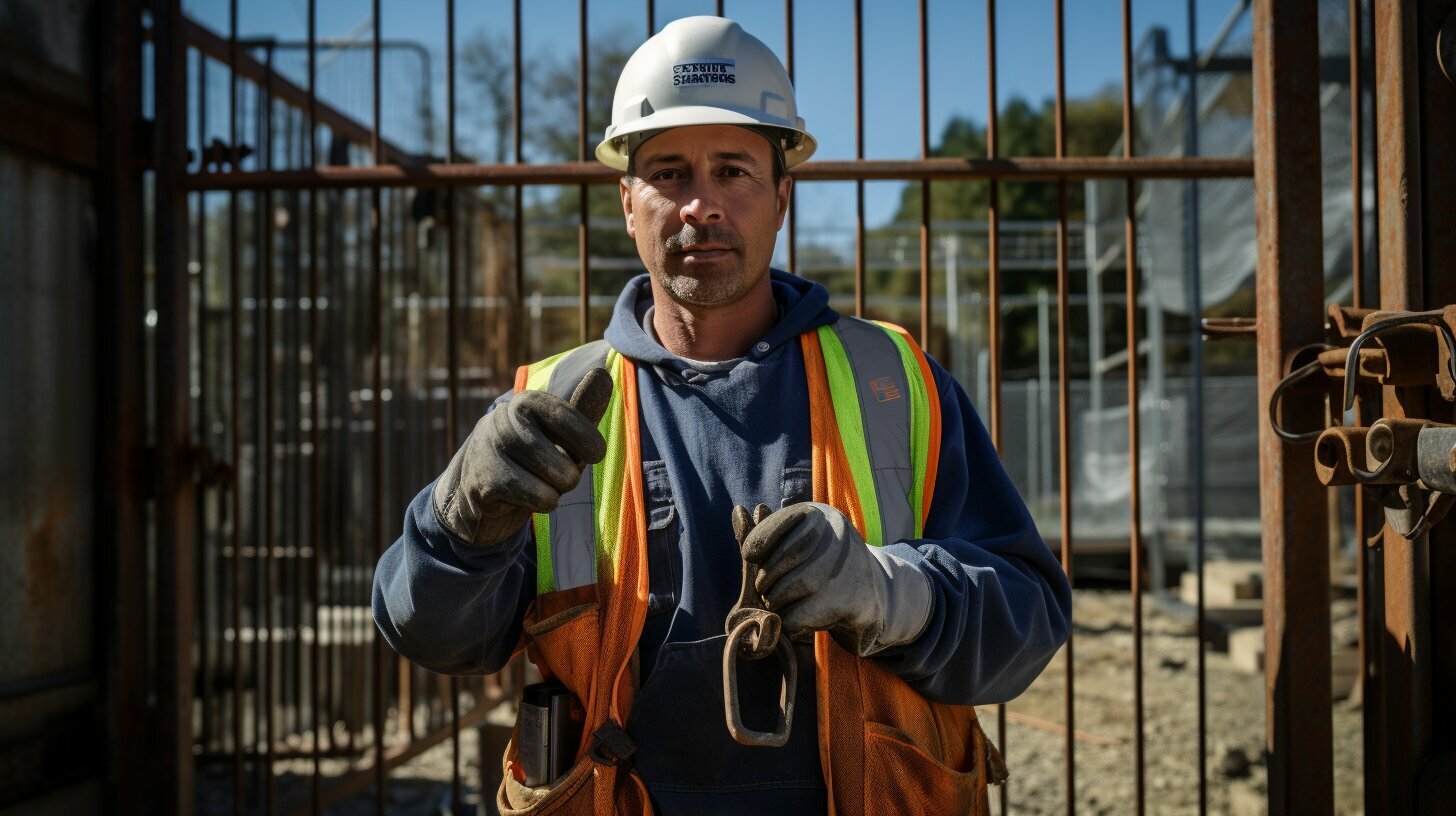
Obtaining a general contractor license is a crucial step towards a successful career in the construction industry. It not only demonstrates your expertise and competency but also opens up numerous opportunities for growth and advancement. However, the process of obtaining a general contractor license can be complex and varies from state to state. This article aims to provide you with a comprehensive guide on how to navigate through the licensing process and set yourself up for success as a general contractor.
Key Takeaways:
- Having the necessary training, knowledge, and skill set is essential for obtaining a general contractor license.
- Common requirements include proof of general liability and workers’ compensation insurance, passing industry practice and regulation exams, and demonstrating financial stability.
- The application process involves completing the application form, submitting supporting documents, and paying the required fees.
- Exams and qualifications, such as written exams or practical assessments, are necessary to meet the standards set by licensing boards.
- Understanding state-specific guidelines and regulations is crucial to ensure a smooth licensing process.
- General contractor license fees vary depending on the location, and licenses must be renewed periodically.
- Continuous professional development and staying up-to-date with industry trends are vital for long-term success as a general contractor.
General Contractor License Requirements
Before embarking on the journey to become a licensed general contractor, it is essential to familiarize yourself with the specific requirements set by each state. These requirements ensure that general contractors possess the necessary skills, knowledge, and qualifications to execute construction projects efficiently and to industry standards.
To obtain a general contractor license, individuals must fulfill certain common requirements. These include providing proof of general liability and workers’ compensation insurance, passing exams on industry practices and regulations, demonstrating financial stability, and providing documentation of qualifications and work experience. The specific details may vary from state to state, so it is crucial to research the requirements in the jurisdiction where the contractor plans to operate.
Additionally, there are different types of contractor licenses, including general contractors license, subcontractor license, and reciprocal contractor license. Each type may have its own set of requirements and limitations. Understanding the distinctions between these licenses is essential for aspiring general contractors to navigate the licensing process successfully.
Common General Contractor License Requirements:
| Type of Requirement | Description |
|---|---|
| General Liability and Workers’ Compensation Insurance | Proof of insurance coverage to protect against liability and workplace injuries. |
| Exams on Industry Practices and Regulations | Passing written or practical exams that assess knowledge of construction industry practices and compliance with regulations. |
| Financial Stability | Demonstrating financial capability to support construction projects, such as providing audited financial statements. |
| Qualifications and Work Experience | Providing evidence of relevant qualifications, such as educational degrees or certifications, and documented work experience in the construction industry. |
The process for obtaining a general contractor license can be challenging and time-consuming. It often involves completing application forms, submitting supporting documents, paying fees, and undergoing background checks. The costs associated with obtaining a general contractor license vary depending on the location and the specific licensing requirements of each state.
Furthermore, it is important to note that general contractor licenses must be renewed periodically. Renewal requirements may include continuing education courses or fulfilling additional experience criteria. Staying informed and up-to-date on licensing renewals is crucial for general contractors to maintain their credentials and continue operating legally.
The General Contractor License Application Process
The general contractor license application process involves several steps that aspiring contractors need to follow diligently. While the specific requirements may vary from state to state, there are common procedures that all individuals must navigate to obtain their license.
- Research State-Specific Guidelines: The first step is to research the licensing requirements in the state where you plan to operate as a general contractor. Each state has its own set of regulations, exams, and documentation requirements. Understanding these guidelines is crucial to ensure a smooth application process.
- Complete the Application Form: Once you have familiarized yourself with the state-specific requirements, you will need to complete the general contractor license application form. This form typically requires personal information, proof of insurance, and a detailed account of your qualifications and work experience. Make sure to provide accurate and up-to-date information.
- Submit Supporting Documents: Along with the application form, you will need to submit supporting documents that validate your qualifications and work experience. These may include proof of education, certifications, letters of recommendation, and financial statements. It is essential to compile all the necessary documents and ensure they meet the state’s requirements.
- Pay the Required Fees: The final step in the application process is to pay the required fees. These fees can vary depending on the state and may include application fees, examination fees, background check fees, and licensing fees. It is important to budget for these expenses and submit the payment promptly to avoid any delays in the application process.
| State | Application Fee | Examination Fee | Licensing Fee |
|---|---|---|---|
| California | $300 | $75 | $200 |
| Texas | $200 | $100 | $250 |
| Florida | $250 | $80 | $150 |
“Obtaining a general contractor license is a rigorous process that requires dedication and attention to detail. It is important to familiarize yourself with the specific requirements in your state and ensure that you fulfill all obligations. Taking the time to research, gather the necessary documents, and pay the required fees will set you on the path to becoming a licensed general contractor.”
General Contractor License Exams and Qualifications
In order to obtain a general contractor license, applicants must pass specific exams and meet certain qualifications that demonstrate their competency in the construction industry. These exams are designed to test the knowledge and skills required to perform various tasks related to construction projects. The qualifications, on the other hand, serve as proof of the applicant’s experience, education, and ability to meet the standards set by licensing boards. Let’s take a closer look at the exams and qualifications required to obtain a general contractor license.
Types of Exams
The exams for a general contractor license typically fall into two categories: written exams and practical assessments. The written exams assess the applicant’s understanding of construction laws, regulations, building codes, safety procedures, and project management principles. Practical assessments, on the other hand, evaluate the applicant’s ability to apply these concepts in a real-world setting. These exams are often conducted by state licensing boards or authorized third-party organizations.
Qualifications and Experience
In addition to passing exams, applicants must fulfill certain qualifications and demonstrate relevant work experience. The exact qualifications vary by state but generally include a combination of education and practical experience in the construction industry. Some states may require a minimum number of years working as a journeyman or apprentice under a licensed contractor. Others may accept a degree in construction management or a related field as a substitute for work experience. It is important for applicants to carefully review the specific requirements set by the licensing board in their state.
Continuing Education
Once licensed, general contractors are often required to participate in continuing education programs to maintain their qualifications. These programs help contractors stay up-to-date with the latest industry trends, technologies, and best practices. Continuing education requirements vary by state and may include a certain number of hours of coursework or attending seminars and workshops. It is essential for general contractors to prioritize ongoing professional development to ensure they remain knowledgeable and competent in their field.
| State | Exam Type | Minimum Qualifications |
|---|---|---|
| California | Written Exam and Practical Assessment | 4 years of experience or a degree in construction-related field |
| Texas | Written Exam | 5 years of experience or a degree in construction-related field |
| Florida | Written Exam | 4 years of experience or a combination of education and experience |
As seen in the table, different states have different requirements for general contractor licenses. Applicants should review their state’s licensing board website or consult with industry professionals to ensure they have the necessary qualifications and are prepared for the specific exams required.
General Contractor License Fees and Renewal
Obtaining and renewing a general contractor license incurs various fees that are essential for ensuring compliance and continued professional growth. The cost of obtaining a general contractor license can vary depending on the state and the specific requirements. These fees cover the processing of applications, background checks, and examinations.
Once the initial license is obtained, it is important to note that licenses must be renewed periodically to maintain active status. Renewal fees are charged to ensure that contractors stay up to date with the latest industry regulations and standards. The renewal process typically includes submitting an application, paying the required fee, and providing evidence of continuing education or professional development.
Additionally, different states may have additional fees associated with the renewal process. For example, some states may require contractors to provide proof of general liability insurance and workers’ compensation coverage, which incur additional costs. It is crucial to thoroughly research the specific fees and requirements in the state where the contractor will operate to avoid any surprises.
| Fee Type | Amount |
|---|---|
| Initial License Application Fee | $X |
| Background Check Fee | $X |
| Examination Fee | $X |
| License Renewal Fee | $X |
| Continuing Education Requirements | Varies |
It is crucial for aspiring general contractors to factor in these fees when planning their career path. While the costs associated with obtaining and renewing a general contractor license may seem daunting, they are essential investments to ensure compliance with state regulations and to maintain a competitive edge in the construction industry.
Conclusion
Obtaining a general contractor license is not only a regulatory requirement but also a sign of professionalism and expertise in the construction industry. To excel in this field, individuals must have the necessary training, knowledge, and skill set to complete construction projects with competency and high standards.
The process of obtaining a general contractor license can vary from state to state, but there are common requirements that must be fulfilled. These include providing proof of general liability and workers’ compensation insurance, passing exams on industry practices and regulations, demonstrating financial stability, and providing documentation of qualifications and work experience.
It is important to note that there are different types of contractor licenses, such as general contractors license, subcontractor license, and reciprocal contractor license. To ensure compliance, it is crucial for contractors to understand the specific licensing requirements in the state where they intend to operate.
The process of obtaining a general contractor license can be challenging and time-consuming. It typically involves exams, financial obligations, and work experience. The cost of obtaining a general contractor license varies depending on the location, and licenses must be renewed periodically. Therefore, it is essential for aspiring general contractors to thoroughly research and understand the requirements in order to set themselves up for success in the industry.
FAQ
What is a general contractor license?
A general contractor license is a certification that allows individuals to legally operate as general contractors in the construction industry. It signifies that they have met the training, knowledge, and skill requirements necessary to complete construction projects competently and to high standards.
What are the common requirements for obtaining a general contractor license?
Common requirements include proof of general liability and workers’ compensation insurance, passing exams on industry practices and regulations, demonstrating financial stability, and providing documentation of qualifications and work experience.
Are there different types of contractor licenses?
Yes, there are different types of contractor licenses, including general contractor license, subcontractor license, and reciprocal contractor license. The specific type of license required depends on the nature of the construction work being performed.
What is involved in the licensing process?
The licensing process can be challenging and time-consuming. It typically involves exams, financial obligations, and providing proof of relevant work experience. Each state has its own specific guidelines and procedures that individuals must follow.
How much does it cost to obtain a general contractor license?
The cost of obtaining a general contractor license varies depending on the location and the specific requirements of the licensing board. There are fees associated with application processing, exams, background checks, and licensing. It is important to research the costs involved in the state where the license will be obtained.
Do I need to renew my general contractor license?
Yes, general contractor licenses must be periodically renewed to remain valid. The frequency of renewal depends on the state, and there are usually additional fees associated with the renewal process. It is essential to stay updated and comply with the renewal requirements to continue operating as a licensed general contractor.
continue reading
Related Posts
Acquiring a general contractor license involves a multi-step journey that
A general contractor plays a crucial role in construction projects,
A general contractor plays a crucial role in the successful




